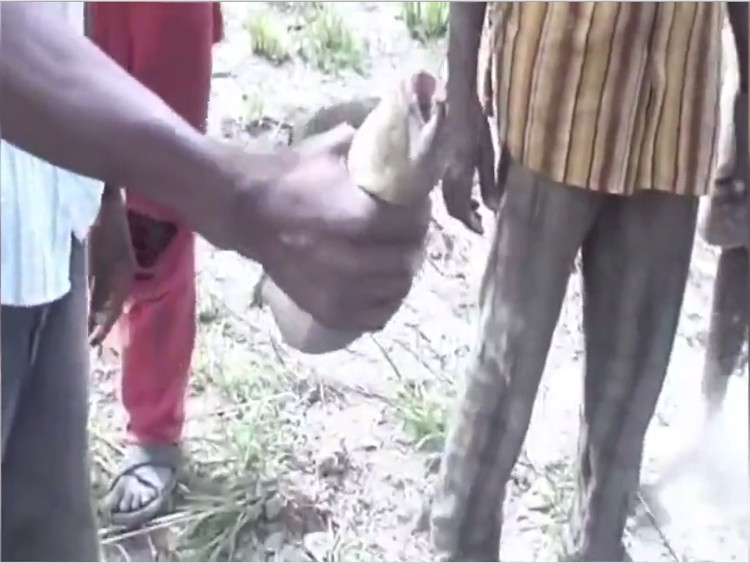Fish can sleep 4 years in cocoons to avoid drought
When the lake dried up, African lungfish burrowing mud made cocoons to sleep for years to wait for the rainy season.
Unlike most fish species that are in great trouble when the lake is shallow, African lungfish can make snoozes in mud to wait for the rainy season to return for years, Live Science reported on July 31.
This fish has lungs that coordinate with the activity of respiration to breathe. Lungs need air to breathe right in normal conditions, so if kept in water long enough, they can drown.

African lungfish is removed from mud pods.(Photo taken from the clip).
When prolonged drought weather drains ponds and lakes, lung fish digs in the mud. The mucus produced by them secretes into a cocoon to keep the body moist. This cocoon is large enough to maintain the air flow around it, helping the fish lungs continue to draw air and the network of blood vessels in the bubble filters out oxygen. This adaptation helps live lung fish survive the drought season, which can last up to 4 years.
In the video shared by the US National Science Foundation (NSF) on July 27, a group of Ghanaian people caught lung fish sleeping in cocoons. Animals still live healthy even without water for a long time.
According to NSF fisherman Dr. Prosanta Chakrabarty, when lungfish make cocoons to avoid drought , the body's metabolism decreases as in hibernation in other species. All four species of lung fish in Africa are capable of covering the body in cocoons so that they do not become dehydrated.
There are 6 species of lung fish found in Africa, South America and Australia. Fossils show that this creature appeared 400 million years ago and is considered the common ancestor of all four-legged animals today.
In addition to breathing characteristics in the air like terrestrial animals, lung fish also have the ability to move with four extra legs on the body. The movement of parachute fish is primitive but indicates the possibility that this form of movement evolved from the water before the animal fully adapted to terrestrial life.
Cocoons help African lung fish fight drought for up to 4 years.(Video: American National Science Foundation).
- Difficult question: Do fish sleep?
- The strange 'fish rain' surprised the people
- Instructions on how to fry fish to avoid cancer
- Why are marine fish more colorful than river fish?
- Fish fly like birds to avoid enemies
- Eating more fish will help children be smarter and sleep better
- Drought in Spain in the past 500 years
- Why should you not sleep while sleeping?
- Drought in Spain is the most serious in 150 years
- To avoid distraction, eat fish
- The city loses sleep because of fish calling for mates
- Why are cocoons of insects very strong?
 Animal 'suffering' after hibernation
Animal 'suffering' after hibernation Why do goats climb well?
Why do goats climb well? Scientists were surprised to see chimpanzees eating turtles
Scientists were surprised to see chimpanzees eating turtles Giant catfish died deadly due to drought in Thailand
Giant catfish died deadly due to drought in Thailand